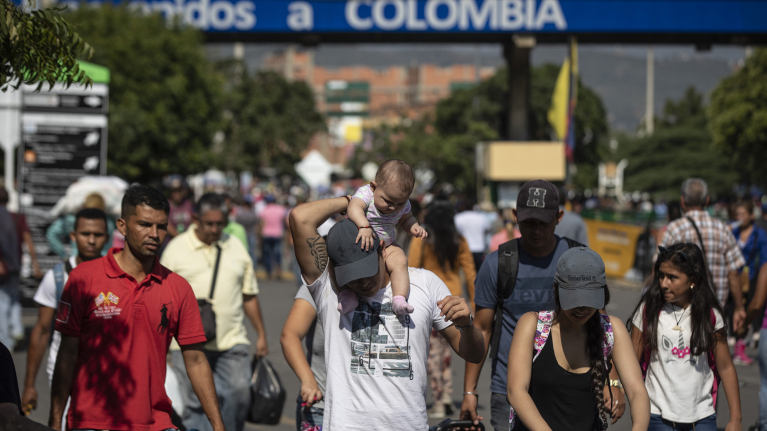Labour migration
The ILO supports socio-economic integration of refugees and migrants from Venezuela with a decent work approach
The Venezuelan displacement is the largest human displacement in the history of Latin America and the Caribbean and the second largest in the world. At a roundtable in Brussels, the ILO presented the main advances and challenges faced by host countries in the socio-economic integration process of the Venezuelans.

The roundtable was held within the framework of the Solidarity Conference with Venezuela, which takes place in Brussels on March 16 and 17. This Conference is co-organized by Canada and the European Union, in collaboration with UNHCR, IOM and R4V, which the ILO is part of, both at the regional level and at the level of the host countries.
The roundtable brought together members of the Platform in order to highlight the progress achieved and raise awareness of the persistent challenges and risks faced by refugees and migrants from Venezuela, and their host communities in Latin America and the Caribbean. Since 2015, more than 7 million people have left their homes in Venezuela due to the worsening social, economic, political, and human rights situation. 84% of them live in another country in the region.
The ILO promotes the socio-economic integration of refugees and migrants from Venezuela, and provides technical assistance to the Ministries of Labour and employers' and workers' organizations in host countries, to advance sustainable responses that make it possible to take advantage of the human and social capital of migrants to contribute to the productivity of countries. A key tool for this is the implementation of the Regional Strategy for the socio-economic integration of migrants and refugees, designed with the support of the ILO and UNDP, and adopted in 2021 by R4V and the Quito Process.
The persistent challenges have to do with the slowdown in economic growth in the region, which is reflected in a slow recovery in employment after the crisis associated with COVID-19, informality, and low levels of investment and social spending. This is reflected, for example, in the fact that on average, "six out of ten jobs are in the informal sector, but in the case of migrants and refugees, this figure is much higher: 90 percent of them work in the informal economy," said María Olave, Project Coordinator at the ILO Regional Office for Latin America and the Caribbean.
Many refugees and migrants lack the necessary documentation to access critical services such as health, education, social protection, and employment promotion, which limits income generation and their ability to sustain themselves, putting further pressure on social assistance services. The main barriers to the socio-economic integration of refugees and migrants from Venezuela are the impossibility of recognizing their previous learning and validating their professional titles, a limited response capacity of public services, and a growing feeling of xenophobia in the host communities generating social tensions.
At the roundtable, the importance of guaranteeing access to decent work opportunities, recognition of qualifications, and access to professional training and financial inclusion services, was underlined, which are key aspects for their socio-economic integration and psychosocial well-being.
The ILO promotes the equal participation of refugees and migrants from Venezuela in the labour market and supports the creation of companies run by migrants and refugees who have the skills, abilities, and motivations to be entrepreneurs, both in urban and rural areas. It also supports national and local governments in recognizing qualifications and competencies.
"We provide technical assistance within the framework of integration processes such as the Quito Process. Based on the good practices of the host countries, we can generate responses adapted to the needs of the different population groups, including women, youth and indigenous peoples, and the different local contexts in the 17 countries in the region,” concluded María Olave.